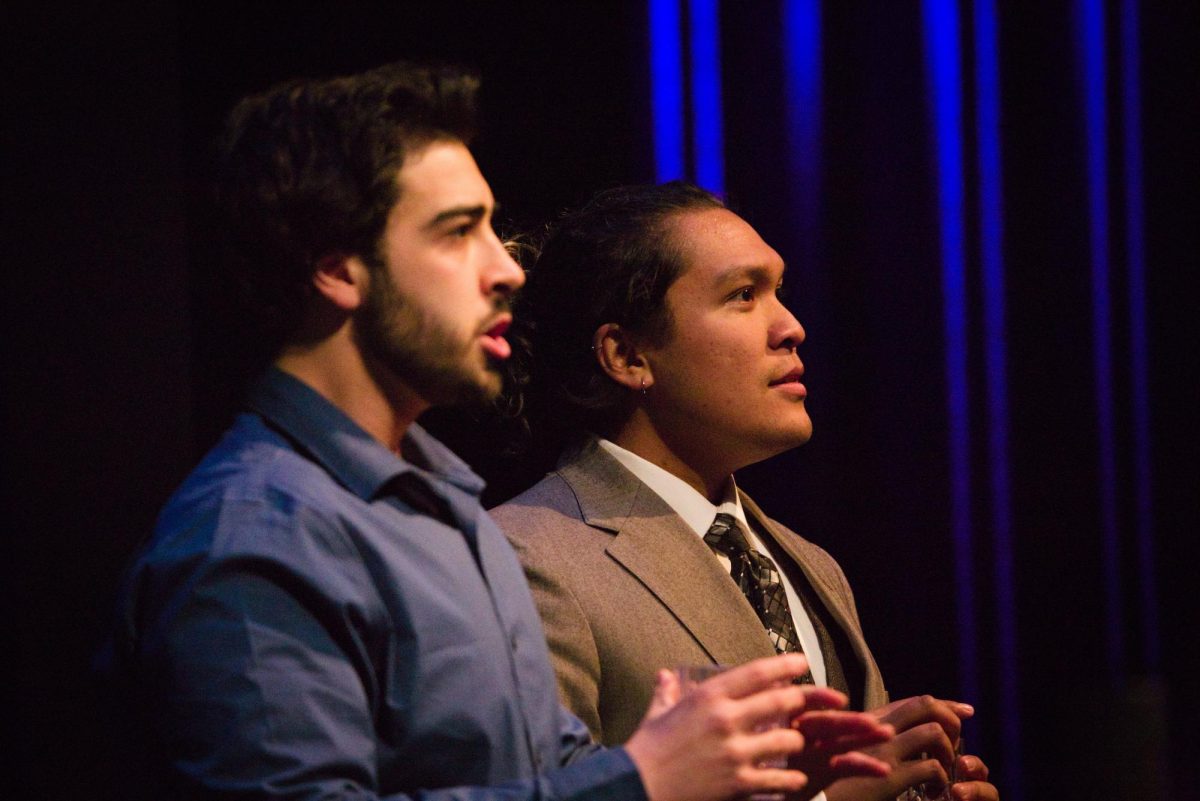By ADAM WILSON, staff reporter
The Department of Labor recently released unemployment rates for the month of April indicating that students graduating this spring are looking at 7 percent unemployment in Washington and 7.5 percent unemployment nationwide.
Unemployment is further affected by the type of degree people have, which the 2010 U.S. Census reported could range from 0 percent to 19 percent depending on the degree.
At the end of the quarter, Central will have graduated students from over 100 majors throughout the last three quarters—2264 of which graduated from the ten most popular degrees on campus.
The most popular major on campus, business administration, will have 405 graduates this year.
“It’s so broad,” said Jordan Softli, business senior. “The amount of things you can do with a business degree are a lot more than what you can do with other degrees.”
Softli decided to become a business major after his brother earned his degree in the same field. Data collected by the U.S. Census in 2010 shows that about 6 percent of people with business degrees are unemployed, and it is the most popular degree nationwide.
“Some people that are getting a business degree aren’t going into business,” Softli said. “It’s just something to fall back on.”
Softli already found a job working for QBSI Xerox Company in Redmond, where he will work as a sales representative.
Business administration has the most students graduating this year from Central. Following that is law and justice, with 302 students and elementary education with 275. Rounding out the top five degrees are social sciences and accounting, with 260 and 252 students, respectively.
Elementary education is the largest education program at Central and the eighth most popular degree nationwide, according to the U.S. Census. However, it is the 12th lowest paying major among the 173 studied as part of the census, with median earnings at $40,000 a year. Graduating senior Daniel Harada isn’t worried about the money.
“When you want to work with people in any sort of way, money isn’t the first thing on your mind,” Harada said. “Even though I won’t make a huge amount of money, I am planning for it.”
Elementary education, which has a 3.6 percent unemployment rate nationwide, is one of Central’s most reputable programs, according to Harada. It helped him better think critically and unconventionally about simple pieces of knowledge.
“I would probably describe it as challenging in an unusual way, taking content that people already know and presenting it in different ways,” Harada said. “For an adult it becomes so routine, but you have to remember you’re explaining it to a child.”
Being a student at Central has opened many doors for Harada in elementary education. Many teachers he has networked with also graduated from Central, which has become a strong tool in his networking.
Harada hopes future students do not look at their possible income alone to decide their major. He encourages anyone who wants to become an elementary teacher to do it.
“The money isn’t as important as one might think,” Harada said.
Psychology, much like elementary education, is one of the most popular programs at Central, with 204 students graduating this year. This popularity is shared nationwide according to the U.S. Census, but its median earnings are only $43,000 a year. Much like Harada, psychology and sociology senior Travis Pilarcik isn’t worried about how much money he is going to earn.
“I’d rather have a fulfilling job than a super high paying job,” Pilarcik said.
Pilarcik, who originally came to Central to be a music major, will be graduating in the spring and starting his master’s degree at Lewis & Clark College in Portland. He will be studying mental health counseling and addiction. He says he wanted to be able to be the person people can talk to when they need it.
“That to me was incredibly fulfilling that I could do that for people,” Pilarcik said.






